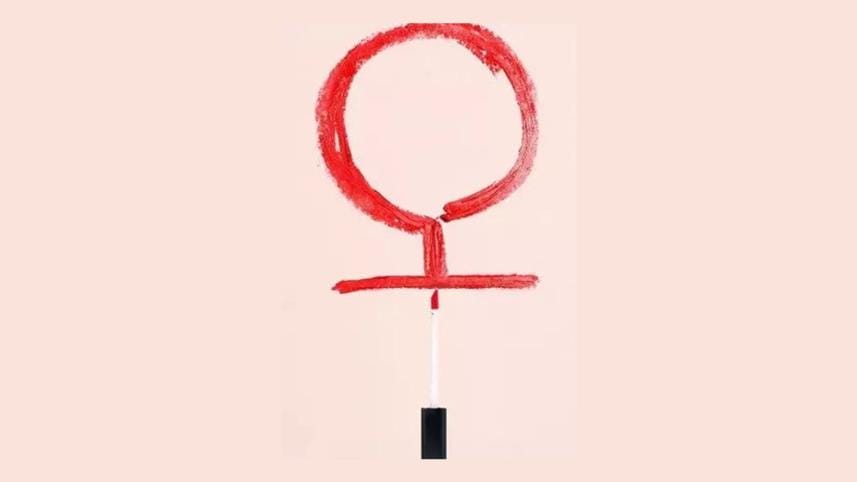Can feminists wear lipstick?

A few months ago, before the coronavirus outbreak, I attended a talk in Dhaka by a well-known internationally acclaimed feminist. The house was full, the air thick with expectation. I had heard of her aplenty, seen many talks of her online, and was eagerly waiting to hear her speak.
She appeared to be down to earth, easy to follow and had an aura around her that made you immediately trust her, especially in the way she spoke of her beliefs and the conviction through which she passed on her knowledge. I was eager to hear her thoughts, with the expectation that her views would further enable me to strengthen my views and use them in discussions that start with, "At this day and age, you still think feminism is necessary?" Or, worse, "Yes, I believe in feminism, but only the kind that talks about equality". As opposed to other kinds of feminism, which frankly I am not sure exists.
So, it started off where most feminist talks pick up from—the difference between sex and gender, and why women empowerment is essential. But then she said something about gender, and I lost her. We know that sex is biological, and gender is picked up from the environment by the way we grow up and so, is socially constructed. But what she also said was that we need to move away from "gender". I agree on the need to break free from gender constructs that link one's gender to specific roles (for example men don't cry and women are weak), but what if one's sex is the same as one's gender and she/he consciously relates to that gender? Again, doesn't this theory completely disregard trans people who go to great lengths to resemble the gender (sometimes physically, sometimes only mentally) they feel they are (as opposed to the sex they are born with)?
Then, she brought on the idea of capitalistic patriarchy, that pursues women to wear lipstick and high heels, and although she does not really have an issue with it, she goes on to say, "one shouldn't complain of wearing heels to work and then talk about #MeToo when they are harassed at their workplace". I could see many women of my generation nodding in approval, but I also saw some younger ones who did not agree with what she was saying.
"Isn't it my choice to wear heels and lipstick, and can't I be a feminist and wear lipstick?", said one of the girls present in the room. To this, she replied saying that there are now many kinds of feminism, which she referred to as "my choice feminism", and that is not the kind of feminism she relates to. What I think she meant was neoliberal feminism, which encourages you to be aware about all your influencers, and then pick what works for you. Sure, capitalism has led us to believe that we need to use several products in order to look pretty. But ultimately, isn't it my choice to wear and dress how I want to? Neoliberal feminism, as I see it, allows one to just be—you can be the one to wear a tight shirt, or a hijab, or even combine the two. You can choose to wear makeup, or not. In fact, you can be a man and choose to put on lipstick, and that should be okay. But most importantly, my feminism teaches me to not judge, to accept people for who they are.
If we separate the different kinds of feminism and categorise them into the good, bad and ugly, are we not once again taking on a high and mighty approach, and saying one is better than the other? Also, then isn't this a new form of patriarchy, in which one tribe of feminists take precedence over others, and isn't that what we for years have fought so hard to stay away from?
Feminism, to me, and I am sure to most of us, is that safe space where one should be able to be how they want to be, where one is comfortable enough to voice their opinions and where others will be accepting of it. Feminists too need to find ways that hold us together, instead of drawing lines and barriers in between us.
Syeda Samara Mortada is The Regional Movement Builder, Asia at SheDecides.



 For all latest news, follow The Daily Star's Google News channel.
For all latest news, follow The Daily Star's Google News channel.
Comments